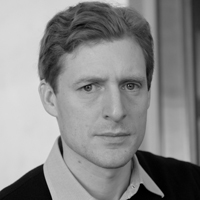VATICAN CITY — The two smartly dressed middle-aged men who tried to bluff their way into the Vatican Bank this month might have expected they’d be welcome. And a few years back, they might have been right.

The dapper gentlemen, an American and a Dutch-born man, calmly told the Swiss Guards at the Vatican main gate that they had an appointment at the bank, which occupies a round and rather ominous looking medieval tower inside the city state’s walls.
When bank staff informed the guards that no such appointment existed, the men starting naming cardinals who supposedly expected them. At that point the Vatican police officers, their suspicions aroused, asked to inspect the contents of the briefcase one of the men carried. Inside was a stunning collection of corporate bond certificates denominated in U.S. dollars, Hong Kong dollars and euros. Their collective face value: trillions of whatever currency you choose.
The Italian tax police were called to interrogate the two, identified as Owen Thomas Lennon, 53, from the United States, and Zvonko Bardik, or possibly Zvonko Berdik Albert, aged 68, who carried a Malaysian passport and two Dutch ones.
The men were “very confident,” said Lt. Col. Davide Cardia of the tax police. And “confident” would be the word, as in “con.” “The certificates were forged,” said Cardia, “and from the grammar used it looked like the men had used Google Translate to prepare them.” Cardia said that “when we started questioning them their confidence faded rapidly.”
For the bank, known by its Italian initials IOR, the scene was a slightly embarrassing throwback to its notorious go-go years, when it allegedly provided financial services for Mafiosi and money launderers, not to mention well-to-do Italians looking for a bolt hole from the Italian tax man.
A former bank governor, American Archbishop Paul Marcinkus, was indicted in 1982 when the institution was linked to the collapse of the Italian Banco Ambrosiano, in which it held a stake. Ambrosiano’s chairman, Roberto Calvi, was nicknamed “God’s Banker” because of his famously close connections to the Holy See, but one morning in 1982 a postman found him rather unceremoniously hung by the neck under Blackfriar’s Bridge in London.
More than 30 years later, when Francis became pope, the stench of corruption at the bank was still so thick that he he determined to step up the drive for transparency started by his predecessor. Dozens of customer accounts were closed, and just last week, Italian magistrates said two former senior managers at the bank, Paolo Cipriani and Massimo Tulli, will stand trial for money laundering. Cipriani and Tulli were close to prelate Nunzio Scarano, a Vatican functionary now on trial for trying to smuggle 20 million euros into Italy in a tax dodge.
The man drafted by the Vatican to try to set things straight is Rene Bruelhart, who sports sharp suits and designer stubble and was quickly dubbed the “James Bond” of the Holy See. Pope Francis also created a new authority in February to shake up the Vatican's own finances. It will call in lay experts and carry out surprise audits to prevent further scandals.
If the two hapless fraudsters had gotten into the bank this month and strolled past the front hall, where nuns and priests queue at the ATM that offers instructions in Latin, they might have stumbled upon the back room where a team of consultants is combing through accounts looking for suspicious transactions. Officials now claim the team will have worked through all 18,900 accounts by the early summer.
Clearly the dapper con men were not up to speed on all these recent developments. “It looks like they haven’t been watching the evolution at the bank,” said Cardia. “This is the first time the Vatican calls us for help, which is a good start and the fruit of what they are doing there.”
When Cardia’s men searched the fraudsters’ room in a three-star hotel near the Vatican they found a set of stamps and seals for forging the bond certificates.
“They were probably trying to use the certificates to open a line of credit at the Vatican,” said Cardia. But IOR spokesman Max Hohenberg said the plan was ridiculous. “They had no chance to obtain a credit line since the bank does not give credit,” he said.
Cardia said the episode reminded him of the scene in a film by legendary Italian comic Toto in which he plays a con man trying to sell the Trevi Fountain to an American tourist. A movie of more recent vintage, “American Hustle,” might also come to mind.
“There will be a trial for attempted fraud, but since the men were not arrested, I am assuming they fled Italy,” said Cardia.
In any case, a Vatican source dismissed the incident as if it were a joke.
“These men showed they were not exactly genius fraudsters,” he said. “More like idiots.”





